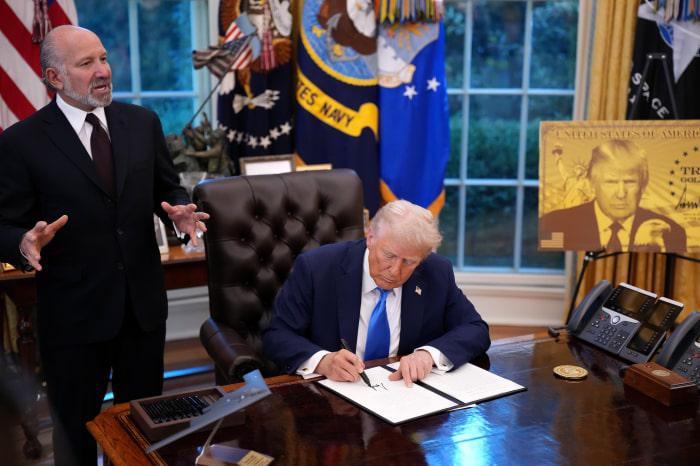The U.S. Chamber of Commerce has filed a lawsuit challenging the Trump administration’s new $100,000 fee on H-1B visa petitions. The business lobby argues the fee is unlawful and will severely impact startups and small businesses. The legal action marks a major escalation in corporate resistance to immigration policy changes.
Legal Storm Brews Over H-1B Fee Hike: Chamber of Commerce Takes Trump Administration to Court
In a dramatic escalation of tensions between corporate America and the Trump administration, the U.S. Chamber of Commerce has filed a lawsuit against the newly imposed $100,000 fee on H-1B visa petitions. The legal challenge, announced on October 16, 2025, argues that the fee violates the Immigration and Nationality Act and threatens the viability of the U.S. tech and innovation ecosystem.
Key Highlights from the Lawsuit and Policy Debate:
Fee Details and Impact
The Trump administration introduced a $100,000 fee per H-1B petition, citing national interest and immigration reform.
The fee applies to new applications and renewals, significantly raising the cost for employers hiring foreign talent.
Chamber’s Legal Argument
The Chamber contends the fee is unlawful, as it exceeds the cost-recovery limits set by federal law.
It claims the policy will make the H-1B program cost-prohibitive for startups, small businesses, and even mid-sized firms.
Statement from Leadership
Neil Bradley, Executive VP of the Chamber, stated: “The new $100,000 visa fee will make it cost-prohibitive for U.S. employers to utilize the H-1B program.”
He emphasized the need for more workers, not fewer, to sustain economic growth.
Industry Reaction
Tech companies and business groups have expressed alarm, warning of talent shortages and outsourcing risks.
Many firms are reconsidering offshore hiring or relocating operations to more immigration-friendly countries.
Political Context
The fee hike is part of Trump’s broader immigration overhaul, aimed at reducing dependency on foreign labor.
Critics argue it undermines America’s competitiveness in science, technology, and research.
Next Steps in Court
The lawsuit will be heard in federal court, with potential implications for visa policy, labor markets, and executive authority.
Legal experts predict a lengthy battle, with possible injunctions or reversals depending on judicial interpretation.
This case could redefine the future of skilled immigration in the U.S., with ripple effects across global talent pipelines and innovation hubs.
Sources: Wall Street Journal

